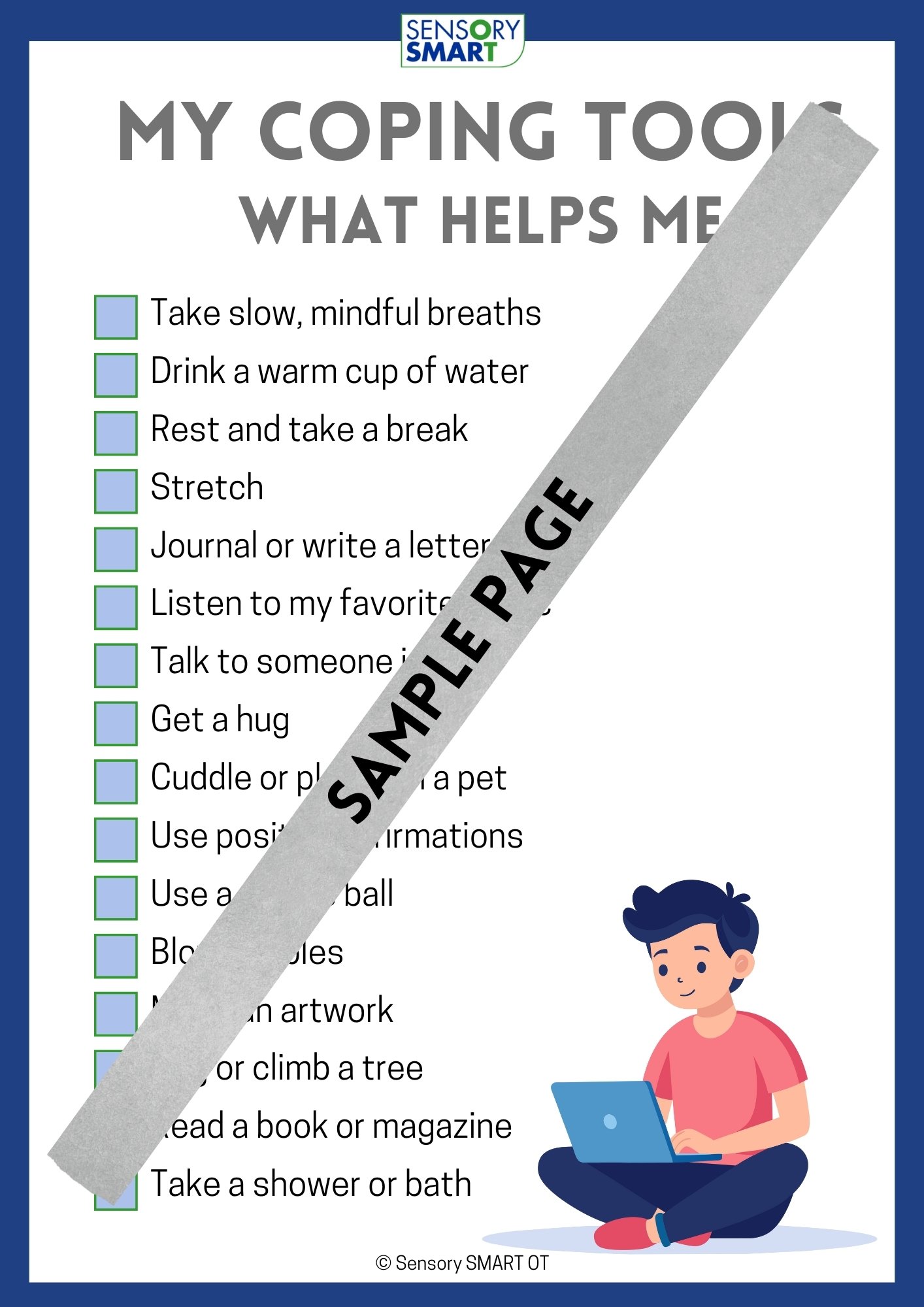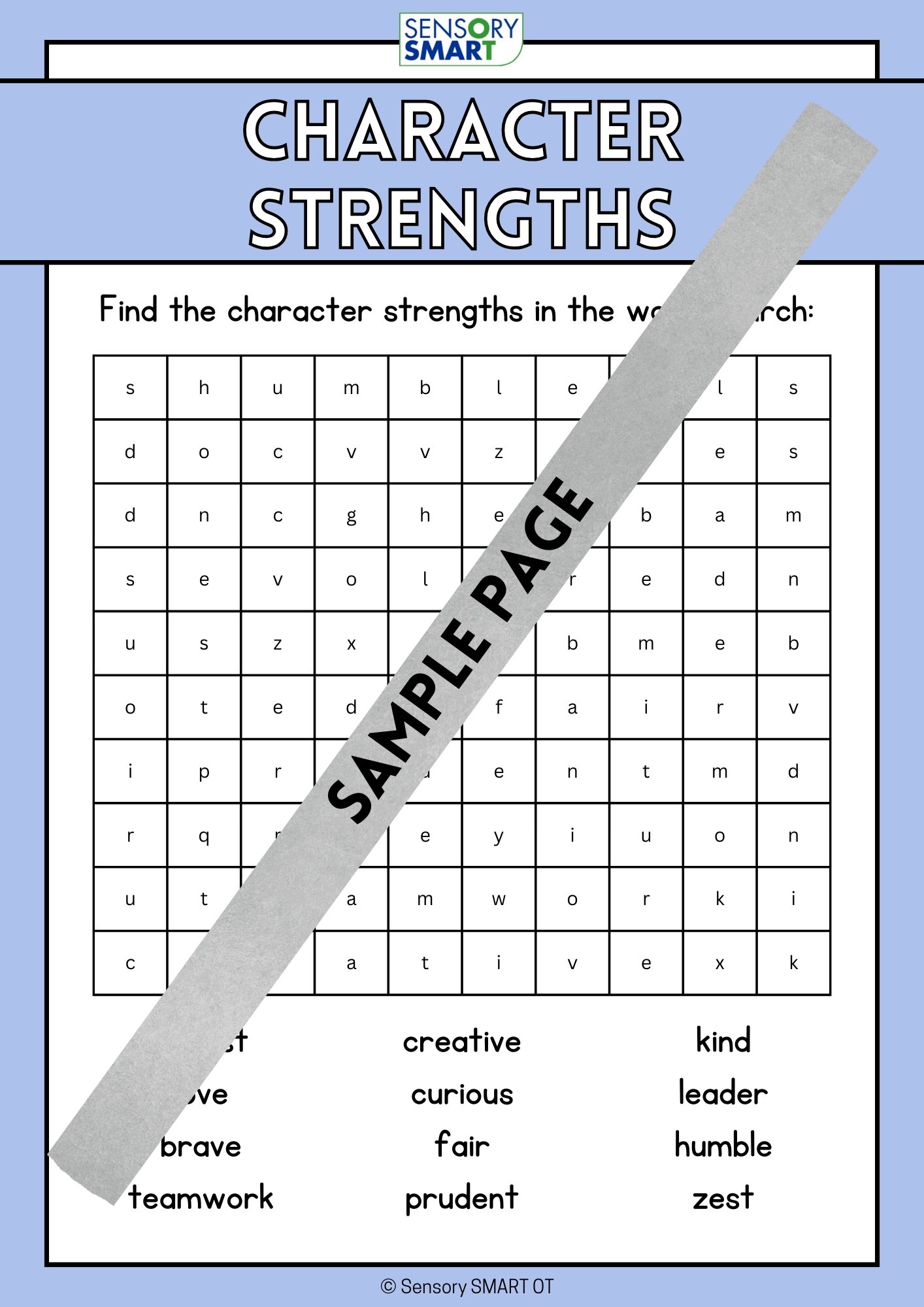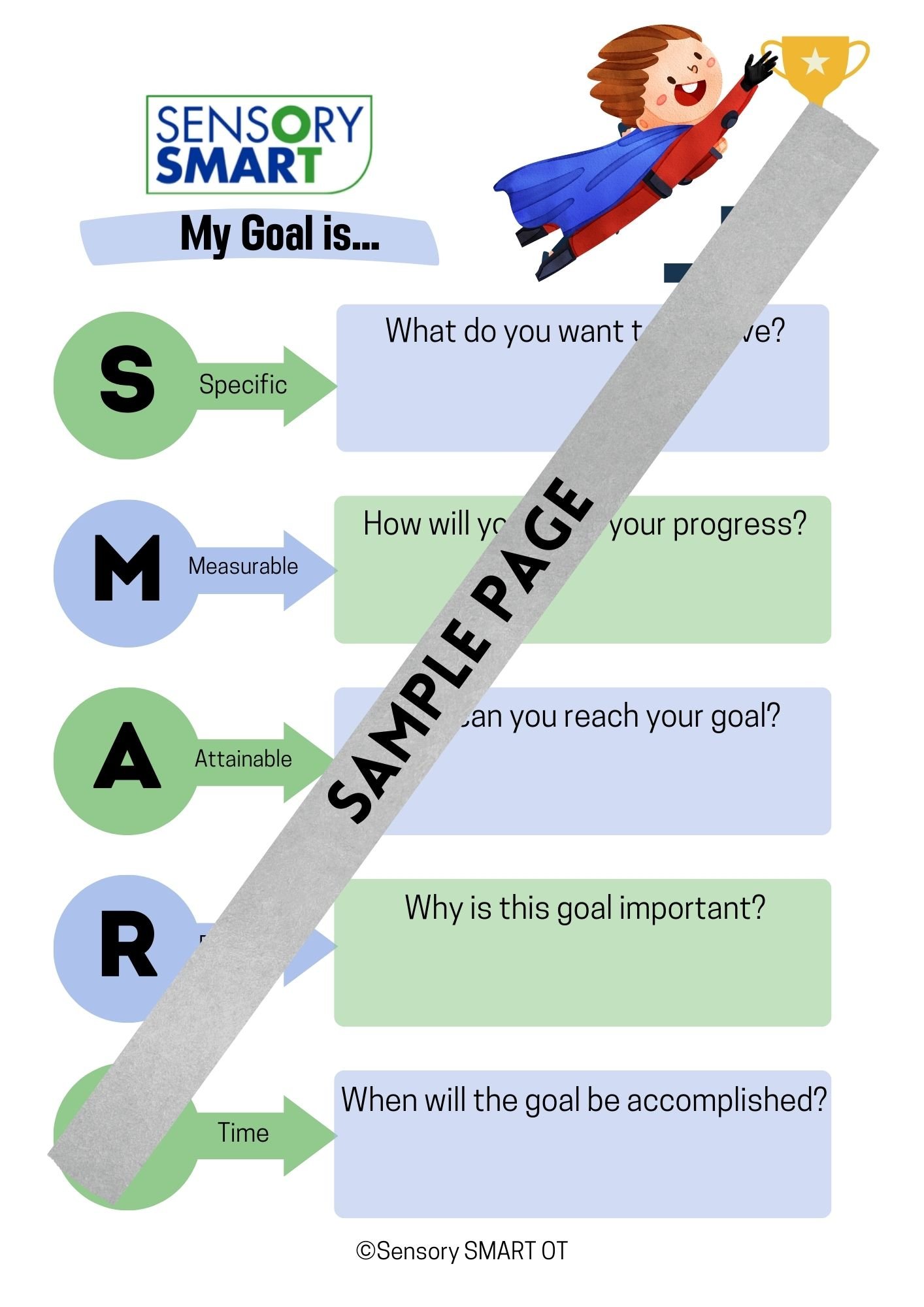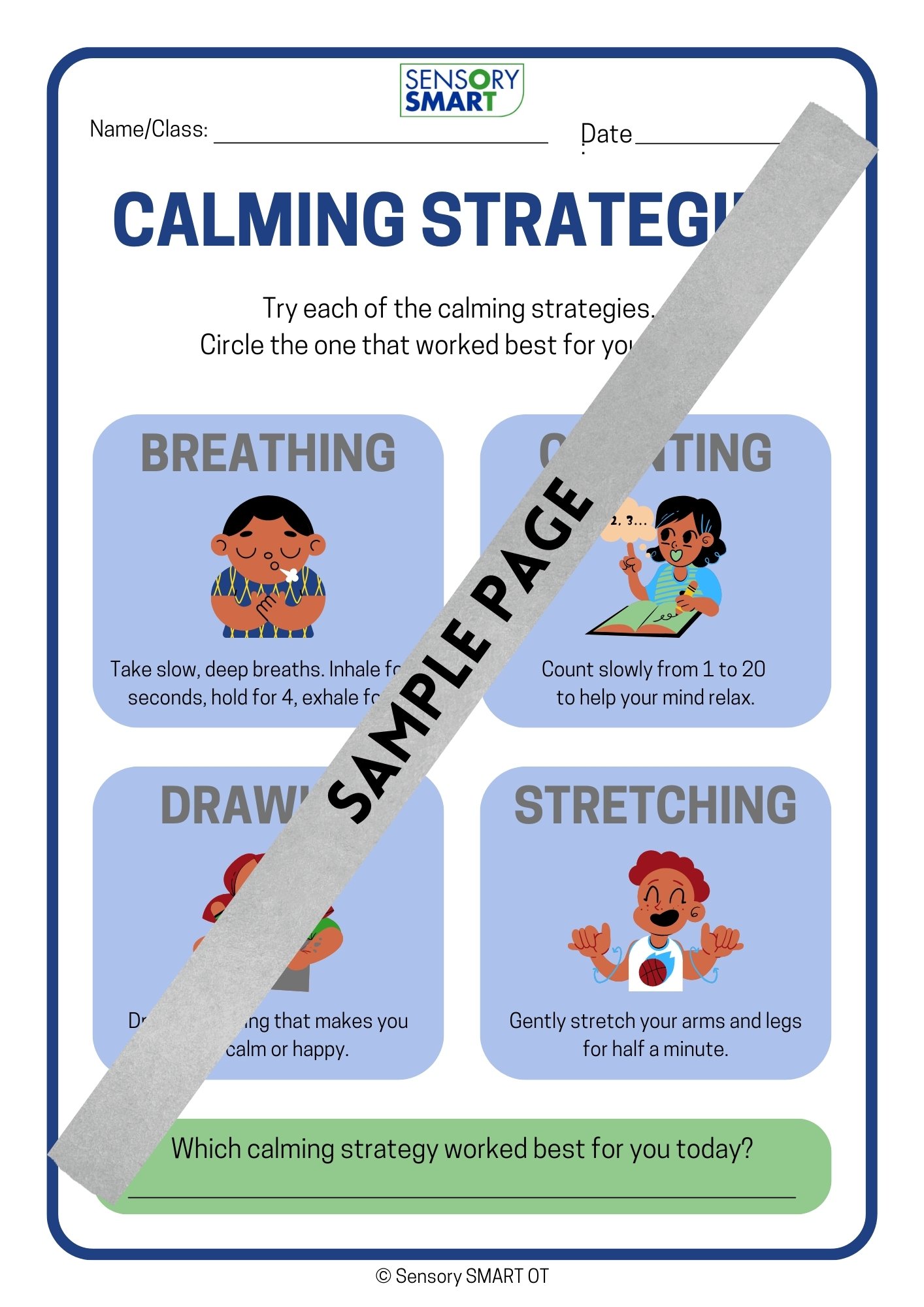 Image 1 of
Image 1 of


My Coping Tools Worksheet – A Simple and Effective Activity for Kids to Develop Healthy Coping Strategies
Help Kids Build Effective Coping Skills with the My Coping Tools Worksheet
The My Coping Tools Worksheet helps children identify and utilise different coping strategies for managing emotions. This printable resource includes a list of coping techniques, such as breathing, journaling, and engaging in physical activities. It empowers kids to create their own toolbox of strategies to manage stress, anxiety, and overwhelm in a healthy and manageable way.
What's Included:
Printable PDF of the My Coping Tools Worksheet
A checklist of effective coping strategies for kids to reflect on and choose from
Space for children to personalise their coping strategies based on their preferences
Benefits & Features:
Promotes Emotional Regulation – Helps children understand and use coping strategies to manage their emotions.
Fosters Self-Awareness – Encourages kids to identify what makes them feel better and how to apply it in real-life situations.
Encourages Positive Habits – Teaches children practical techniques to handle stress and build resilience.
Fun & Interactive – A hands-on way for children to explore coping tools and feel empowered in their emotional journey.
Printable & Reusable – Download once and use as often as needed to reinforce coping strategies and emotional growth.
How to Use:
Print the worksheet and review the list of coping strategies with your child.
Have your child choose a few strategies that they feel would help them when they’re stressed or upset.
Encourage regular use of the worksheet to build positive emotional habits and reinforce coping skills over time.
Disclaimer: The content provided by Sensory SMART OT Pty Ltd, including but not limited to information, activities, resources, and digital downloads, is for educational and informational purposes only. While the activities and resources are designed to support development and learning, they are not a substitute for professional assessment, therapy, or medical advice. If you have concerns about a child’s development, sensory processing, or functional abilities, it is recommended that you consult a qualified Occupational Therapist, health professional, or medical practitioner.
Help Kids Build Effective Coping Skills with the My Coping Tools Worksheet
The My Coping Tools Worksheet helps children identify and utilise different coping strategies for managing emotions. This printable resource includes a list of coping techniques, such as breathing, journaling, and engaging in physical activities. It empowers kids to create their own toolbox of strategies to manage stress, anxiety, and overwhelm in a healthy and manageable way.
What's Included:
Printable PDF of the My Coping Tools Worksheet
A checklist of effective coping strategies for kids to reflect on and choose from
Space for children to personalise their coping strategies based on their preferences
Benefits & Features:
Promotes Emotional Regulation – Helps children understand and use coping strategies to manage their emotions.
Fosters Self-Awareness – Encourages kids to identify what makes them feel better and how to apply it in real-life situations.
Encourages Positive Habits – Teaches children practical techniques to handle stress and build resilience.
Fun & Interactive – A hands-on way for children to explore coping tools and feel empowered in their emotional journey.
Printable & Reusable – Download once and use as often as needed to reinforce coping strategies and emotional growth.
How to Use:
Print the worksheet and review the list of coping strategies with your child.
Have your child choose a few strategies that they feel would help them when they’re stressed or upset.
Encourage regular use of the worksheet to build positive emotional habits and reinforce coping skills over time.
Disclaimer: The content provided by Sensory SMART OT Pty Ltd, including but not limited to information, activities, resources, and digital downloads, is for educational and informational purposes only. While the activities and resources are designed to support development and learning, they are not a substitute for professional assessment, therapy, or medical advice. If you have concerns about a child’s development, sensory processing, or functional abilities, it is recommended that you consult a qualified Occupational Therapist, health professional, or medical practitioner.
Help Kids Build Effective Coping Skills with the My Coping Tools Worksheet
The My Coping Tools Worksheet helps children identify and utilise different coping strategies for managing emotions. This printable resource includes a list of coping techniques, such as breathing, journaling, and engaging in physical activities. It empowers kids to create their own toolbox of strategies to manage stress, anxiety, and overwhelm in a healthy and manageable way.
What's Included:
Printable PDF of the My Coping Tools Worksheet
A checklist of effective coping strategies for kids to reflect on and choose from
Space for children to personalise their coping strategies based on their preferences
Benefits & Features:
Promotes Emotional Regulation – Helps children understand and use coping strategies to manage their emotions.
Fosters Self-Awareness – Encourages kids to identify what makes them feel better and how to apply it in real-life situations.
Encourages Positive Habits – Teaches children practical techniques to handle stress and build resilience.
Fun & Interactive – A hands-on way for children to explore coping tools and feel empowered in their emotional journey.
Printable & Reusable – Download once and use as often as needed to reinforce coping strategies and emotional growth.
How to Use:
Print the worksheet and review the list of coping strategies with your child.
Have your child choose a few strategies that they feel would help them when they’re stressed or upset.
Encourage regular use of the worksheet to build positive emotional habits and reinforce coping skills over time.
Disclaimer: The content provided by Sensory SMART OT Pty Ltd, including but not limited to information, activities, resources, and digital downloads, is for educational and informational purposes only. While the activities and resources are designed to support development and learning, they are not a substitute for professional assessment, therapy, or medical advice. If you have concerns about a child’s development, sensory processing, or functional abilities, it is recommended that you consult a qualified Occupational Therapist, health professional, or medical practitioner.





